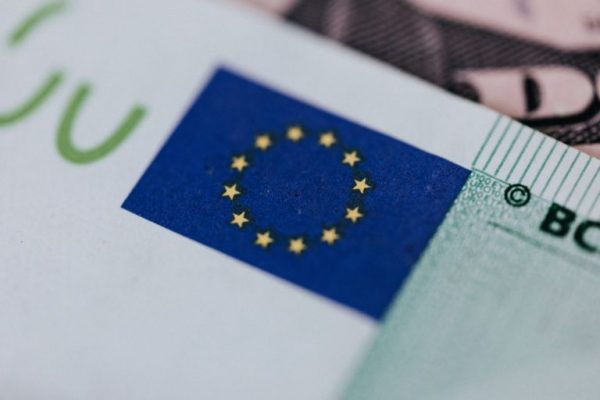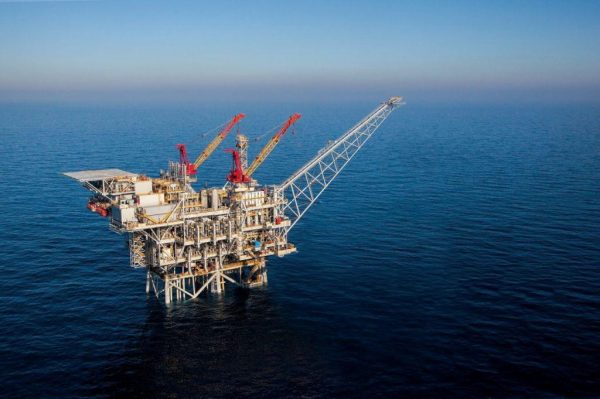
Although the Greek economy presents a better picture compared to other European economies, it is nevertheless expected to be on the verge of recession in 2023, according to what is stated in a related report by Deutsche Bank. And indeed with persistently high inflation in 2023 as well
In particular, Greece will continue to present a better image compared to Europe, but this is enough to achieve a growth rate of 0.3% for the next year, according to the estimates of the German bank.
The bank estimates that our country will record an increase in GDP by 0.3% next year from 6.4% in 2022, while the recession in Europe has already begun. Deutsche Bank predicts a recovery in 2024, with growth rates of 1.4%. Greece will be one of the few countries in the eurozone to perform positively in the next very difficult year for the region, as the recession will be felt across the board (-0.6%), with Germany the worst performer with a recession – 1%, followed by Belgium with 0.6%, Austria and Finland with 0.5%, Italy and France with 0.4%, while zero growth is expected in Spain, Ireland (+1.5%) , the Netherlands (+0.5%), and Portugal (+0.1%) and are the only countries apart from Greece that will manage to avoid recession in 2023.
Inflation is a big “thorn”. For Greece, it is predicted that the consumer price index will reach 9.4% this year, and the German bank does not foresee a substantial de-escalation of inflation in 2023 and predicts that inflation will decrease -only- to the levels of 7.5% in 2023.
When will prices go down?
In essence, prices will fall in 2024, with inflation “falling” below the limit set by the European Central Bank, namely 1.5%. The fiscal deficit is expected to be 4.2% of GDP this year, 3% in 2023 and 2% in 2024. The current account deficit as a percentage of GDP is expected to be 8.5% this year, 7% in 2023 and 5 .5% in 2024.
However, Deutsche Bank notes that inflation is their main concern for the Eurozone, as it is not expected to reach a “ceiling” before the middle of 2023. Specifically, they estimate that inflation will be 8.4% in the Eurozone this year and will remain at high levels in 2023, at 7.1%, with de-escalation occurring in 2024, when inflation will decrease to 2.2%.
The danger of double dip
Risks to inflation are on the upside and market and public views on inflation remain overly favorable. The recession has begun, but it looks like it will be shallower this winter than the market previously feared. DB estimates that GDP in the Eurozone will fall overall from the fourth quarter of 2022 to the second quarter of 2023 by 1%, compared to previous forecasts of a 2% decline. The Eurozone economy will see a loss in GDP of 0.6% in 2023 from 1.2% previously and recovery is expected to come in 2024 with growth of 1%.
As the analysis puts it, the risk is a “double dip” recession due to significant headwinds in 2023 from a US recession, prolonged high energy costs and significant monetary tightening.
Latest News

EIB Appoints Greece’s Ioannis Tsakiris as New VP
Ioannis Tsakiris started the new role May 1 after spending 15 years at the European Investment Fund (EIF) and serving as Greece’s Deputy Minister for Development and Investments

Two Greek Beaches in Top 50 in the World
Both Greek beaches were on the list of the best beaches in Europe too

Eurostat: Greece 20th out of 26 European States in Hourly Average Wage
According to figures released by Eurostat, the Benelux Grand Duchy of Luxembourg, one of Europe’s hubs for finance, is in first place

Greek Property Renovation Surge amid Economic Constraints
This has led to a notable escalation in renovation costs, with average prices per square meter exceeding previous norms and reaching even 1,000 euros in premium locations

RRF: Additional €5.1bln Funds for Subsidies to Greece in 2025
By April 22, funds totaling 5.75 billion euros had been transferred for approved projects of the Recovery Fund to entities within and outside the general government and final recipients

OECD: Greek Economy Resilient with 2% Growth Forecast for 2024
However, the OECD highlights challenges including the need to enhance productivity and fiscal adjustment due to high debt levels.

Challenges and Delays in Greece’s Hydrocarbon Exploration
Sources disclose that the petroleum companies holding the concessions are seeking partners to jointly invest and share the costs of exploration and drilling.

Greek Beach Visitors Can Report Violations on New ‘MyCoast’ App
Greek authorities hope the newly-launched, free ‘MyCoast’ app will help clamp down on public beach violations

BoG Figures Confirm Banner Year for Greek Tourism in 2023
20.6 billion euros in related revenues topped the previous year’s figure by 16.5%

Piraeus Bank to Propose First Dividend in 16 Years
Piraeus Bank has forecast profits of roughly 900 million euros this year, rising to one billion euros next year

















![Τουρισμός: Η Αθήνα στις 10 ελκυστικές ευρωπαϊκές πόλεις για ξενοδοχειακές επενδύσεις – Πού υστερεί η Θεσσαλονίκη [πίνακας]](https://www.ot.gr/wp-content/uploads/2022/08/hotel-g0908c6995_1920-90x90.jpg)
![Τουρισμός: Πόσα ξόδεψαν και πόσο έμειναν οι ξένοι επισκέπτες το 2023 [πίνακες]](https://www.ot.gr/wp-content/uploads/2024/02/ot_tourist_santorini2-90x90.png)

![ΤτΕ: Το top10 των περιφερειών με τα περισσότερα τουριστικά έσοδα [πίνακες]](https://www.ot.gr/wp-content/uploads/2024/04/02tourismos10-1-90x90.jpg)








![Ακίνητα: Γιατί τα νότια προάστια «νικάνε» τα βόρεια [πίνακες]](https://www.ot.gr/wp-content/uploads/2024/03/12s1akinita-6-600x375.jpg)














 Αριθμός Πιστοποίησης Μ.Η.Τ.232433
Αριθμός Πιστοποίησης Μ.Η.Τ.232433